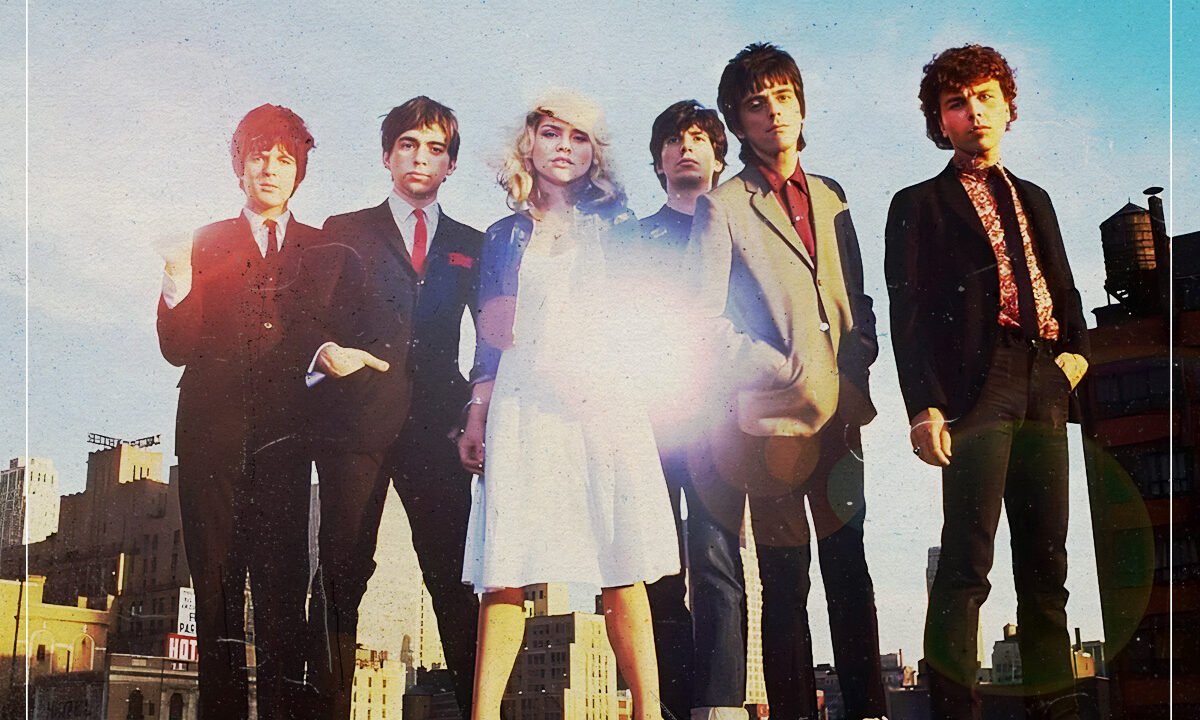

(Credits: Far Out / Alamy)
New York in the 1970s was a hotbed of groundbreaking art across all mediums, and while punk and disco were reigning supreme in the musical sphere around the mid-point, these two would eventually find a way to morph into an exciting amalgamation of both genres. Sitting in the middle of this ‘new wave’ were Blondie, and their adoption of this style is often regarded as the birth of an entirely new genre.
Formed in 1974 by vocalist Debbie Harry and guitarist Chris Stein, it took Blondie a few years to establish themselves on the scene, but with debut single ‘X Offender’, it seemed as though they were a fully-formed concept that wanted to blend the best of every genre they’d been exposed to in their home city. There were elements of everything they’d grown up listening to, but a real fervour to use these influences to create something that stood out from the crowd and felt inventive.
That would be a trend that would continue long into their career, with hits from their 1978 album Parallel Lines such as ‘Hanging on the Telephone’ being an homage to 1960s garage rock, while ‘Heart of Glass’ incorporated a four-to-the-floor disco beat. Moving into the ‘80s, the group would expand their musical horizons even further, with ‘Rapture’ having a distinct early hip-hop influence that showed they were early supporters of this nascent musical trend.
That being said, they didn’t unequivocally love everything that was going on at the same time as them, and much of the reason for their formation was down to their desire to create something that directly opposed the popular rock music of the period. In fact, there were plenty of acts that actively irked them, and Stein would reveal in a 2017 interview with Classic Pop that two in particular summed up exactly why they chose to innovate rather than follow the crowd.
“Everybody we knew was put off by the Eagles and Linda Ronstadt and all that stuff getting to the top of the charts,” Stein said, clearly bewildered by the popularity of these two soft rock superstars. “All those faceless bands into expertise and musicianship.”
Both Ronstadt and Eagles were immensely popular in the mid-1970s, but they were performing what could be considered the direct antithesis of everything Blondie stood for, which was artistic ambition and pushing boundaries, rather than being able to pull off the most technically adept performances. You can’t deny that there are some elements of showmanship that are worthy of admiration, but by comparison to what Blondie were doing, their approach to rock music is what one could brand as ‘playing it safe’.
That being said, that doesn’t mean that the members of Blondie weren’t just as technically proficient, and many of the artists such as Talking Heads and Television who were rising from the same scene of playing clubs like Max’s Kansas City and CBGB were just as virtuosic in their own ways. It may have been radically different when pitted against Eagles and Ronstadt, but it still had the “expertise and musicianship” that Stein was so keen to avoid.
Related Topics
The Far Out Music Newsletter
All the latest music news from the independant voice of culture.
Straight to your inbox.





